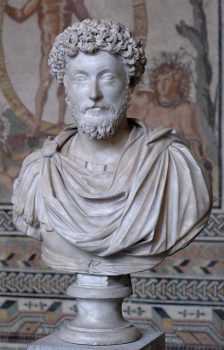Archive for June, 2010
Ancient Roman Villas Posted by kunthra on Jun 28, 2010
Nothing says opulence like a Roman villa. A Roman villa is an aristocratic country house built in the time period between 509 BC – 476 AD. The villas span over over what is now Italy and other parts of Europe. Villa Poppaea is a villa located in the town of Opiontis. It was used by…
Prepositions Posted by kunthra on Jun 25, 2010
Can you spot the preposition in this sentence? Nautae circum īnsulam nāvigant = The sailors are sailing around the island The preposition here is circum. In this case, the word modified to circum is used in the accusative. That’s because cicum is one of those prepositions that use the accusative. Now try spotting the prepostion…
Famous Ancient Roman Fathers Posted by kunthra on Jun 22, 2010
Sixty-one countries celebrated Father’s Day last Sunday, so in honor of Father’s Day I have prepared a list of some famous ancient Roman fathers. Emperor Augustus was a normal ancient Roman father who married his daughter off in her teens. At that time, daughters were no more than political pawns used to further the careers…
The Third Conjugation Posted by kunthra on Jun 19, 2010
Third conjugation verbs can be distinguished by their –ere ending. The following endings belong to the third conjugation : I : –ō You : –is He/She/It : –it We : –imus You all : –itis They : –unt Now that you have these endings, conjugate this third conjugation verb : incolere (to inhabit, to dwell) Here…
Ancient Roman Ball Game Posted by kunthra on Jun 16, 2010
Everyone by now has probably heard of the World Cup Games in South Africa. However, probably not everyone has heard of how the ancient Romans played ball. An ancient Roman game called Harpastum was a ball game where the object of the game was to keep the possession of the ball on your own side…
Adjectives Posted by kunthra on Jun 13, 2010
Here are two sentences with adjectives. Can you spot the difference in each sentence? 1) Porta est alta = The gate is high. (Porta = gate. Alta = high.) 2) Portae sunt altae = The gates are high. In the first sentence, porta and alta are in the singular, but in the second sentence, they…
The Genitive of the Second Declension Posted by kunthra on Jun 7, 2010
The genitive of the singular of the second declension ends in –ī. Scapha puerī in īnsulā est = The boy’s boat is on the island. The plural nominative of the second declension also ends in –ī, but since the way the plural nominative functions in the sentence is very different from the singular genitive of…



